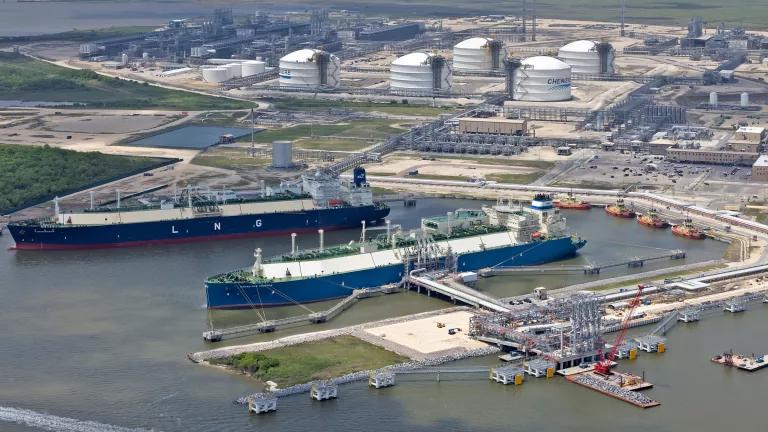
Diesel pollution from buses in Jakarta
courtesy Asian Development Bank via Flickr
When I took over the environmental prosecution unit of the New York City Law Department in 1990, I conducted an informal survey of everyone I knew, asking: What’s the worst environmental problem in New York City? By a big margin, people said it was the black smoke coming out of trucks and buses, emitted from a tailpipe at the same level as kids’ heads.
Today, few people would even mention it. Real change happened here, and relatively quickly. Ducking to avoid a smelly cloud of toxic, cancer-causing diesel exhaust is a reflex that New Yorkers need rarely call upon, thanks to clean air laws and strict emission standards on diesel. When the last of the dirty diesels are phased out across the country, around 2030, we'll be saving about 26,000 lives each year.
In the developing world, however, diesel is still a killer. (Diesel emissions certainly played a role in China's recent off-the-charts smog.) Dirty diesel engines, along with power plants and traditional cookstoves, are major generators of particulate matter--more commonly referred to as soot--which is responsible for 3.2 million premature deaths each year, worldwide.
Diesel engines are also a major contributor to climate change. At the heart of every diesel soot particle lies a light-absorbing, heat-emitting core of what’s called black carbon. According to a major new study published last week, black carbon is the second largest human-made contributor to global warming. It has twice the global warming impact previously thought. And diesel engines are responsible for 20 to 25 percent of the world’s black carbon emissions.
So diesel exhaust is not only a deadly public health risk, but a powerful agent of global warming as well. Yet we know from experience that we can slash diesel pollution, quickly and effectively.
In the United States, programs to clean up diesel have been remarkably effective. When New York City got rid of its dirty diesel buses (in response to a campaign spearheaded by NRDC), particulate emissions from the fleet dropped 97 percent. Black carbon emissions were likely cut by a similar amount through that effort. In California, total black carbon emissions have fallen nearly 50 percent in the past 25 years, largely due to strict diesel emission standards.
New diesel engines in this country are now 90 to 95 percent cleaner than engines that were sold just a few years ago, thanks to a national low-sulfur fuel standard and emissions standards that have made new filter technologies standard equipment on all new trucks and buses. America's clean diesel programs are expected to prevent 26,000 premature deaths every year.
Similar programs around the world have the potential to save millions of lives--and can also help put the brakes on global warming in the short term. Unlike carbon dioxide, black carbon is a short-lived climate pollutant. It takes effect quickly, and wears off quickly. When we pump less of it into the atmosphere, the benefits are almost immediate.
Diesel vehicles in developing nations burn high-sulfur fuel and lack even the most basic emissions controls, exposing people to nearly 100 times as much toxic pollution, while also generating tons of global warming pollution. Because diesel pollution occurs in densely populated areas, right at breathing level, it has an outsized impact on human health, making diesel a critical target in the fight for clean air. And because diesel exhaust produces black carbon, which has now been confirmed as a major global warming pollutant, it's also a critical target in the fight to curb climate change.
NRDC, a founder of the Partnership for Clean Fuels and Vehicles, has been working on cleaning up diesel pollution throughout the developing world.
Through the partnership, countries around the world have started working toward creating a standard for ultra-low-sulfur diesel fuel. This fuel is already available in some major world cities, including Delhi, Hong Kong, Mexico City, and Beijing, but its use is not widespread, and certainly not standard.
The partnership's previous success in eliminating lead from gasoline worldwide—a move that is expected to generate $2.4 trillion in health, social, and economic benefits--lends hope that it could achieve similar success with diesel. Cleaning up diesel worldwide would prevent millions of premature deaths from cancer, heart attacks, and lung disease. It would also help to quickly reduce global warming pollution. Along with our efforts to counter the long-term, potent effects of carbon dioxide, it makes eminent sense to tackle short-acting pollutants like black carbon as well. Dumping dirty diesel is an excellent way to start.


